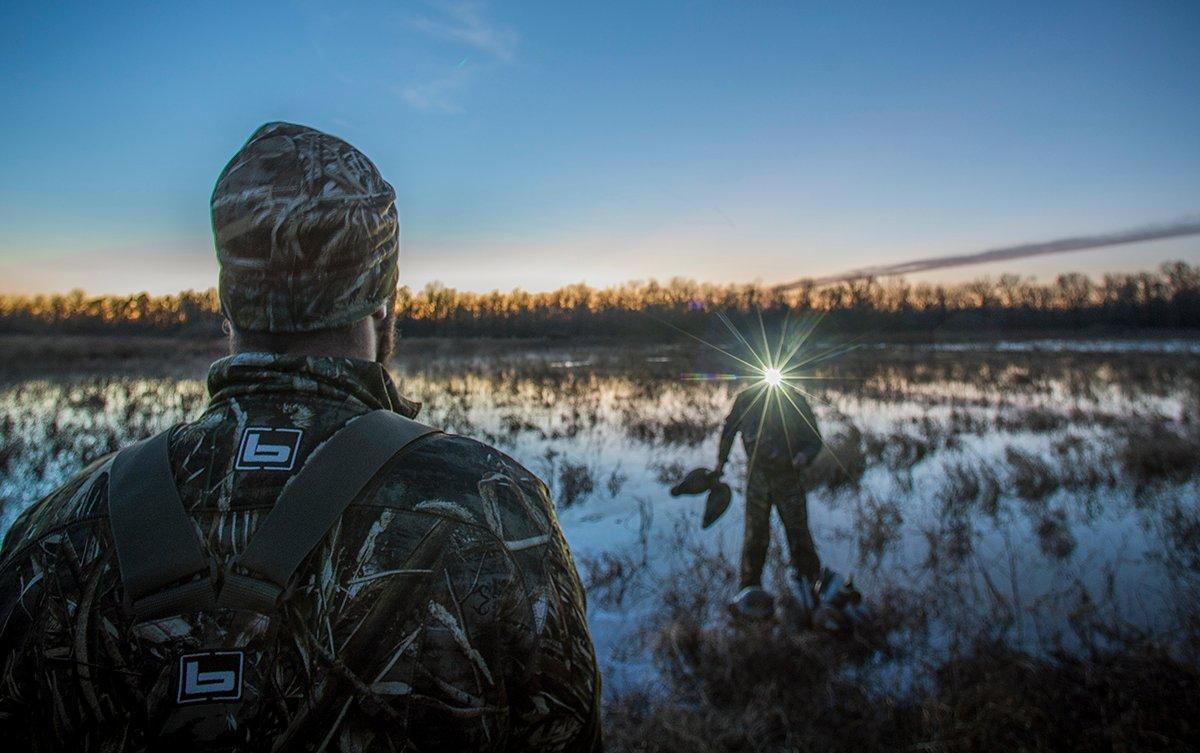You Probably Won't Think About These Items — Until You Really Need Them
You know the drill. In a rush to hit the marsh before the crowds, you run through a hazy mental equipment checklist.
Gun, shells, dog, waders, calls, hat — check. The boat's hooked up, and I switched out the decoys last night. Good to go.
Well, maybe.
Sometimes, seemingly unimportant waterfowl hunting items become critical when you need them. These minor gear items — often afterthoughts — can save you many headaches in the marsh or field. Here's a brief list of overlooked or oft-forgotten items I've learned (the hard way) to carry.
Light on the Boat Key
The boat's in the water, and you're ready to fire up the motor. Fingers freezing, you fumble around trying to slip that tiny key into the keyhole. Meanwhile, another rig pulls into the launch, and panic begins to set in.
I did that for years before finally attaching a tiny light to my boat key chain. Now, I simply pinch the light, line up the keyhole and slip the key in on the first try. My hands stay much warmer, and my blood pressure is better, too.
Shotgun Sling
Slings almost always come in handy, even if you're just carrying your gun — assuming it's not in a case — to and from a boat. They're indispensible for walk-in hunts or other situations in which you must tote lots of gear.
Some folks don't like slings in many scenarios, as they can catch on blinds or trees, inhibiting shot opportunities. Fair enough. Just take it off during hunting, and reattach it for the trip out.
Extra Decoy Anchors or Carabiners
Every duck hunter has broken off an anchor weight or dropped a carabiner used for Texas rigging in the water before light. It just happens. Nowadays, I slip three or four extra anchors in the bottom of my decoy bag just in case. If a line breaks, I quickly attach a new anchor and continue setting decoys. And I carry a bag with plenty of extra carabiners, too.
Spare Boat Key
Yeah, I've been in such a rush to hit the landing that I've left my boat key at home. That's why I keep a spare in my blind bag. Of course, I'm in trouble if I forget the key and my blind tag, but that's another story
Extra Headlamp
Most hunters would agree that a good headlamp is critical for early-morning navigation, placing decoys and finding a suitable set-up spot. So it stands to reason that the No. 1 most forgotten item is probably … the headlamp.
Pack an extra. Or even just stow a small flashlight in your blind bag or wader pocket. Some light will be better than none when you inevitably leave your favorite headlamp at home or in the truck.
Range-Finder
Range-finders don't get much play in the duck hunting world. After all, if you're hunting over open water or in timber, you probably don't need one. Your eye confirms that the decoys are close enough and when birds are in range. However, range-finders can be helpful in some areas, such as semi-urban situations in which you must be a specific distance from buildings, or on large waters with special regulations — being 500 feet from shore, for example. And honestly, they can help in large group situations, too, by letting folks know the precise distance to the farthest decoys.
Facemask
Maybe you wear face paint. If so, read on. But if not, carry a facemask. It'll be invaluable if you must set up looking at the sun or don't have much cover. In fact, stow two or three in your gear, just in case your buds don't bring masks.
Multi-Tool for Gun Repair
Everyone's experienced shell jams or other gun malfunctions at the worst time. Always carry a multi-tool you can use to assist in unjamming or disassembling your shotgun. You might only use it once a season, but you'll be glad you had it.
Oh, and if you're in a pinch and need to remove a choke tube, try a quarter. It's about the simplest choke-tube wrench ever made. Just don't let your sneaky buddy steal your quarter.
Click here for more Realtree waterfowl hunting content. And check us out on Facebook.







